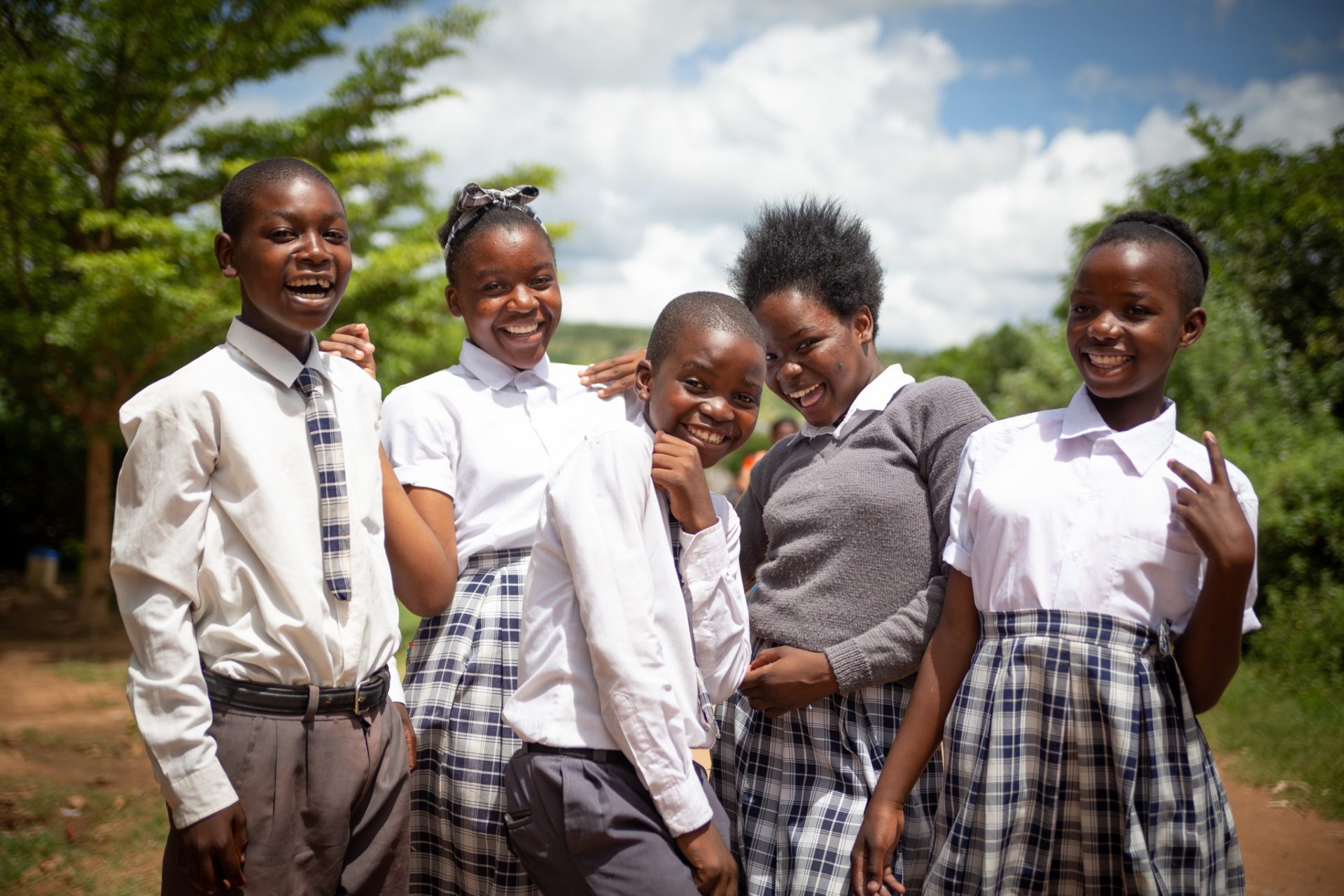Unlocking the potential of Zambia's youth: Q&A with the African Education Program
Written by Olivia Nater | Published: January 13, 2023
Through our Global Partners program, Population Connection supports a growing number of grassroots organizations around the world working to increase access to education, public health and family planning services. Their efforts make a vital difference in their local communities and represent the “final step” in our shared work to make the world a more just and sustainable place for everyone.
Get to know our wonderful partners in this Q&A series! Here we speak to Julie-Anne Savarit-Cosenza, Co-founder & Executive Director of the African Education Program (AEP). AEP was founded in 2004 with a mission to unlock the potential of African youth and adults by building and growing community-led organizations. These organizations lead local transformation through quality education, health, and community development initiatives.
What prompted you to start your organization?
I grew up in what many would consider a suburban bubble outside of Philadelphia. Never one to conform to the norm, I always had my heart set on leaving the bubble to work and become a part of a community far different from my own. My passion and respect for diverse communities, as well as awareness of the world’s inequalities, particularly for young Africans, stemmed from my early exposure to the African expatriate community through my Zambian soccer coach growing up.
During my sophomore year of high school, three friends and I decided to start a service project for students living in communities that were under-resourced and affected by the HIV/AIDS pandemic in Zambia, and then founded the African Education Program. We were focused on having a personal connection to the community we would serve and pinpointed Kafue, Zambia, where my soccer coach’s brother lived. At the time, we were outraged by the waste in our school and decided the project would be to recycle and collect used books, school supplies, computers, and clothes and ship them to Kafue. The container shipped out the spring of 2005, weeks before high school graduation.
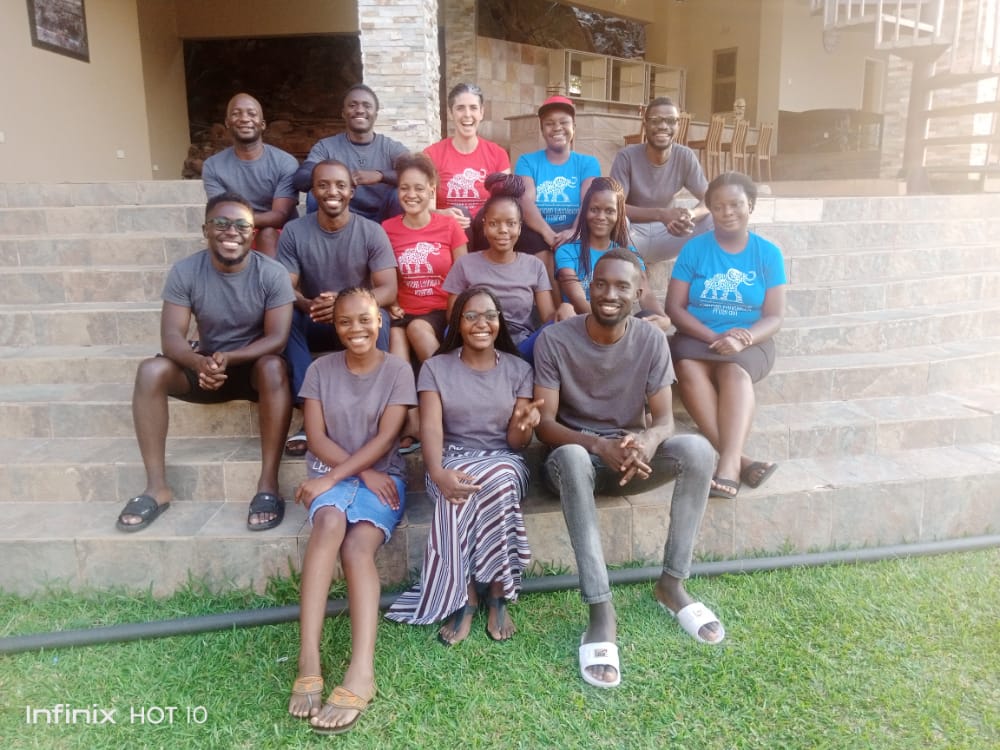
With college on the near horizon, my co-founders and I did not have a clear vision for the future of AEP. We were fortunate to receive a grant to fund a trip to Kafue so that we could meet the community that would be receiving the goods shipped over. Inspired by our Zambian peers, and responding to their plea for a space that would provide an educational, creative, and safe environment, AEP volunteers (myself included), and members of the Kafue community opened our flagship Learning & Leadership Center, named the Amos Youth Centre (AYC), in August 2006.
Since then, we have honed this unique Learning & Leadership Center model. Today, the flagship in Kafue is community-led and unlocking the potential of over 700 children, youth, and women every day.
What programs or projects are you currently working on?
The Learning & Leadership Center in Kafue creates quality and inclusive learning, health, entrepreneurship, and leadership development opportunities for promising Zambian youth and women so they can transform their communities.
Our Reproductive Health Access Initiative has weekly programming which focuses on reproductive and menstrual health, pregnancy prevention, ending HIV stigma, emotional health, self-esteem building, and gender-based violence.
Thanks to these comprehensive programs, the pregnancy rate among the young women at the center is less than 2%, compared to 15-20% locally.
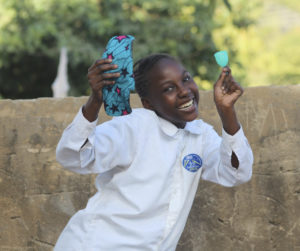
In addition, each young woman at the center receives a pack of reusable pads and a menstrual cup to ensure she never misses a day of school or a day at the center. In 2022, our local center received their first USAID Research-to-Change grant that will assist with capacity building for the local team and also allow us to evaluate our approach distributing reusable menstrual cups to the mothers and guardians of the girls in our program in order to combat stigma and taboos while increasing usage.
What do you hope to achieve in the next five years?
In the next two years, I hope to build the new home for the flagship Learning & Leadership Center in Kafue, Zambia. The new Learning & Leadership Center will be a first-of-a-kind educational resource in Zambia. It will include innovative learning spaces like a STEM lab and an Art Classroom. It will be accessible and incorporate special education learning spaces too.
Then, in the next five years, I hope to complete the Learning & Leadership Center Model, including financial sustainability. In addition to refining our programs and operations, we will diversify the center’s revenue portfolio by decreasing donor dependency and increase local support. This includes creating an aquaponics social enterprise to increase financial self-sustainability.
Finally, we will package the Learning & Leadership Center Model so that it can be replicated across Zambia (and one day across Africa). We do not seek to create a cookie-cutter model. Instead, we will look to adapt the model to each community’s unique context and needs.
What have been some of the greatest challenges you have faced?
Our greatest challenge has always been not having enough funding to thrive. Like most organizations, we depend on the generosity of donors who more often than not prefer to see their gift go directly to a child or specific program like our Nutrition Program or scholarships. For years, we have made ends meet, barely at times, and have been able to do our great work because every member of the team and our volunteers are dedicated and committed to our mission.
We are so grateful for funders like Population Connection who understand the value of general support which frees us to do our work and do it well.
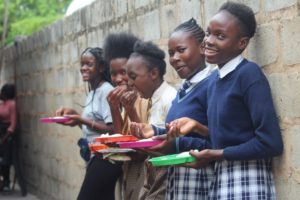
Another challenge has been misunderstandings in the community about our work. Our Learning & Leadership Center was often viewed as just a provider of meals and scholarships, without the understanding of the depth of investment we seek to make in a child through holistic programs. Parents and community members at times have thought there was favoritism of certain children and youth. We have actively worked to engage with parents and the community to overcome this misunderstanding and have them be more actively involved in our work. One way we have accomplished this is by involving the mothers and guardians of the youth in Entrepreneurship & Financial Literacy Program Parent Trainings. To date, 116 women have graduated in four cohorts with the greatest impact achieved by the third cohort to date with a 264% change in net income from the time they started the program to the time it ended. In addition, post data reports that 90% of the graduates from the first cohort have at least one business. Our team is measuring these changes in comparison to the standard of living in Zambia so as to know if the increments are significant enough to push the participants above a certain poverty level.
What are you most proud of?
I am most proud of the fact that the majority of the team running the Learning & Leadership Center in Kafue, Zambia, are alumni of the program. To have seen them grow over the years from children to young adults and now to leaders in their community is incredible.
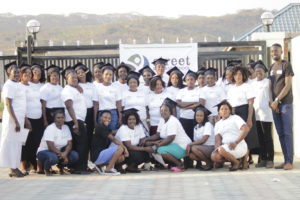
For example, Febby joined the flagship Learning & Leadership Center when she was in 9th grade. Since she was a child, Febby always dreamed of working with children with disabilities.
This dream was nurtured at the center, and through our scholarships, Febby completed secondary school and graduated from the University of Zambia with a BA in Education, specializing in Special Education.
Shortly after graduation, Febby came back to the center to spearhead the Read for Rose Special Education Program.
Today, as the Director of Special Education and a Co-Director of the Center, Febby is changing the lives of 21 amazing specially-abled children. Each girl and boy has a customized learning plan, an opportunity very few children with disabilities have in Zambia.
Anything else you’d like to share with Population Connection members?
Zambia has one of the world’s fastest growing and youngest populations with 68% of Zambians under the age of 25. At the African Education Program, we believe that Zambia is filled with a generation of youth ready to create change for their families, their community and their nation.
Once again, we are incredibly grateful for Population Connection’s support. We are actively looking for like-minded supporters, board members and volunteers who can help us take our work to a sustainable and thriving place. Please reach out if you are interested!
To learn more about the African Education Program, visit their website, and follow them on Facebook, Twitter and Instagram!

